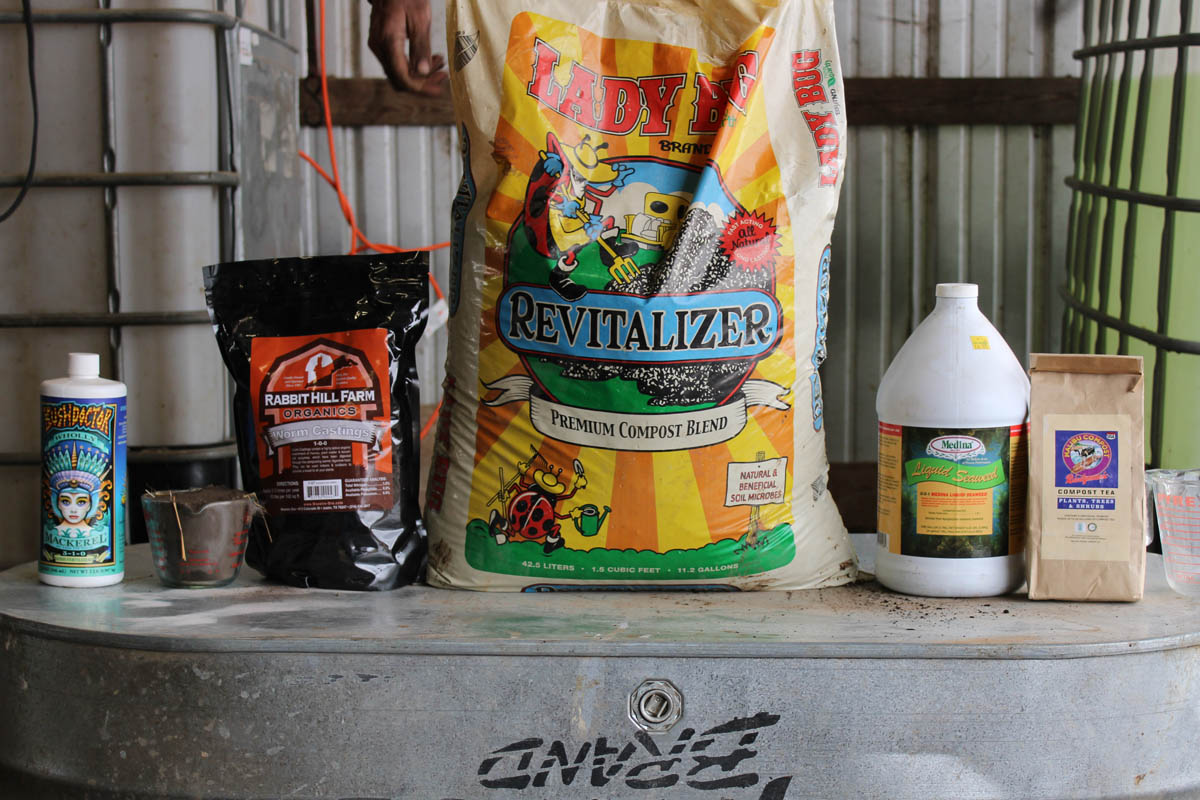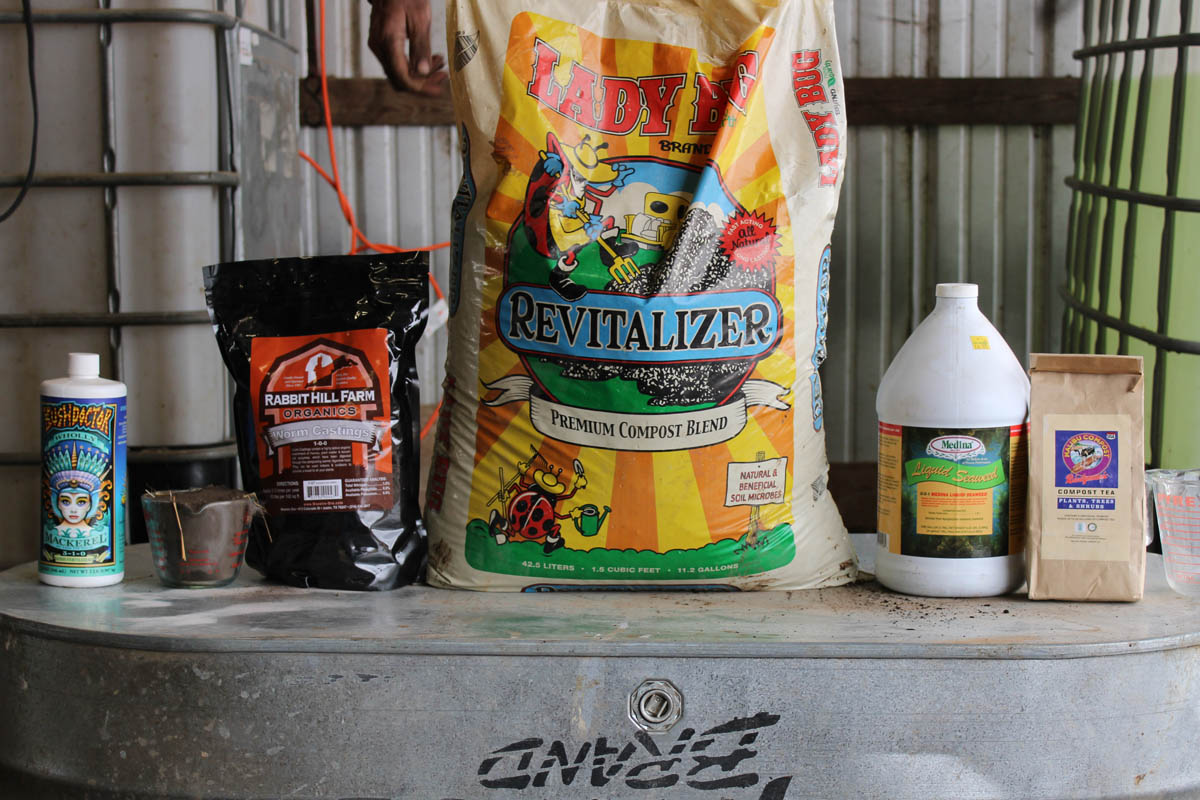At Ponderosa Pecan Ranch, we are 100% committed to natural ways when it comes to managing the farm, our pecan trees, and livestock. One of these ways is using compost tea as a soil conditioner for plant production.
In this article, we will not only take a look at what it is, but also understand why it is used, how it is beneficial, and what use we make of it at our ranch.

What is Compost Tea?
Compost teas are a liquid form of solid compost material. As such, they comprise soluble plant nutrients and other complex microorganisms that make them an excellent choice of fertilizer. If you are an agricultural professional or a gardener, you must have heard of compost tea – although not necessarily by the same name.
The truth is, there are many different names for compost teas. In the past, they have been called a plethora of terms, including amended extracts, compost seepage, watery fermented extracts, and even slurries. However, recently, the term “compost tea” has considerably gained more traction. This is primarily because the preparation of compost tea very closely mimics the process of preparing normal tea, i.e. the tea made for human consumption.
Not sure what we mean? Well, to put it in super simple terms, compost tea is literally tea! Instead of tea leaves, you add compost to the water to extract useful microorganisms and nutrients. This results in liquid tea, which can be applied or sprayed to the plants, incorporated into irrigation systems, or turned into soil drenches and foliar sprays!
Regardless of the name, the purpose of compost teas and other similar products is to supplement soil with useful nutrients that can help streamline future planting processes.
Why Use Compost Tea?
We mentioned that compost tea can help you boost plant production – but can’t chemical fertilizers enable you to do that as well? You must be wondering why we would willingly go through the trouble of preparing a material as complex as compost tea when we can easily purchase chemical products and improve our plant production that way.
Well, the thing is, compost tea (as well as other natural products that we use) is a much better alternative to the harmful chemicals. It is a proven fact that plants require up to 17 micro/macronutrients for growth and reproduction. With compost teas, it is as easy as a breeze to get these nutrients into the plants.
Once it is put in water, the soluble nutrients present in the compost are released into the solution. This means that when the liquid tea is sprayed onto plants or incorporated into irrigation systems, the nutrients are easily transferred to the plants in question and can help them grow.
Unlike chemical fertilizers, compost tea encourages microbial growth. This means that the whole point of compost tea is to supply the plant with microbes such as bacteria, which can then help them germinate seeds and develop roots.
But that is not where the benefits of compost teas end. There are many other advantages that come with the use of compost teas, such as:
- They are inexpensive as compared to chemical fertilizers and pesticides.
- They help in suppressing foliar diseases.
- They speed up the breakdown of toxins.
- They increase the number of nutrients available to plants.
- They result in overall healthier plants.
- They are 100% natural and organic.
- They are easier to make.
- They are easier to access.
- They have no risks involved when it comes to their usage.

Using Compost Tea at the Ranch
At Ponderosa Pecan Ranch, our ultimate aim is to take care of our plants and animals in a way that is not only beneficial for them, but for us and the environment as well. This is one of the biggest reasons behind us using compost teas instead of chemical pesticides and fertilizers to manage plant production and maintain plant health.
Our first choice for fertilizing our plants is compost tea! In 2021 alone, we applied over 750 gallons of molasses and 200 gallons of compost tea to our plants – making an active choice to use natural methods of taking care of our farm instead of resorting to chemical, non-natural ways.
We follow a great compost recipe by Harvard University to ensure that our plants are getting just the right nutrition and feed. It has really helped us improve the health of our plants.
Even when we don’t have compost tea available, we go for natural alternatives such as beneficial microbes instead of chemicals. This dedication to 100% natural and organic methods have enabled us to boost plant health like never before, and we encourage our fellow agriculture experts and farmers to opt for natural materials like compost tea as well.

Kenneth and Sebastian Adding Lady Bug Revitalizer Compost to the Teabag.

Sebastian Opening Air Valve to Compost Tea Bag After Adding the Bag to the Brewer.



